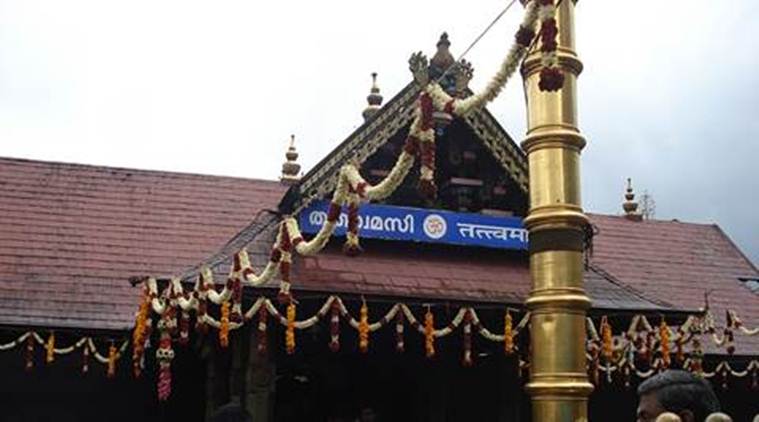Stay updated with the latest - Click here to follow us on Instagram
Tinkering with Sabarimala entry rules will impact other Kerala temples, SC told
The counsel said Sabarimala is a unique religious denomination which should be permitted to have its own tenets. He asserted that Sabarimala devotees formed a denomination irrespective of the faiths to which they belong.
 Defending the age restrictions, advocate V K Biju said it was only because of the unique nature of the deity as a ‘naishtika brahmachari’ (eternal celibate).
Defending the age restrictions, advocate V K Biju said it was only because of the unique nature of the deity as a ‘naishtika brahmachari’ (eternal celibate).
Striking down rules on age restrictions for entry of women to Sabarimala temple will have repercussions for other temples in Kerala as well, the Supreme Court was told Tuesday.
The Kerala Hindu Places of Worship Act, 1965, which is under challenge in the case applies not only to Sabarimala, but to all other temples in the state and striking down the rule framed under the Act will also have an impact on other temples and their customs, advocate Gopal Sankaranarayanan, who represented Sabarimala Ayyappa devotee Usha Nandini, told a five-judge Constitution bench headed by Chief Justice Dipak Misra. Other judges on the bench are Justices A M Khanwilkar, R F Nariman, D Y Chandrachud and Indu Malhotra.
The counsel submitted that the petitioners wanted the temple to be opened to Hindu women of all ages. Even Christians and Muslims visit the shrine, he pointed out and sought to know if the petitioners wanted it to be opened to women of these religions as well. He said Sabarimala is a unique religious denomination which should be permitted to have its own tenets. He asserted that Sabarimala devotees formed a denomination irrespective of the faiths to which they belong.
The CJI questioned the contention, saying a denomination must have a definite identifiable character. Sankaranarayanan replied that the penance of 41 days and rituals associated with the pilgrimage which had to be undertaken by a devotee before visiting the shrine was unique to it and this was its identifying feature. The problem is when we embark on this kind of inquiry, where do we stop, he asked.
Justice Chandrachud observed, “if Constitution lies above, then the question is what role do you ascribe to religion in a public place.”
Defending the age restrictions, advocate V K Biju said it was only because of the unique nature of the deity as a ‘naishtika brahmachari’ (eternal celibate). Referring to the Bhagwat Gita and Swami Vivekananda, he said the deity is a juristic person and was entitled to decide who should visit it, the counsel contended.







